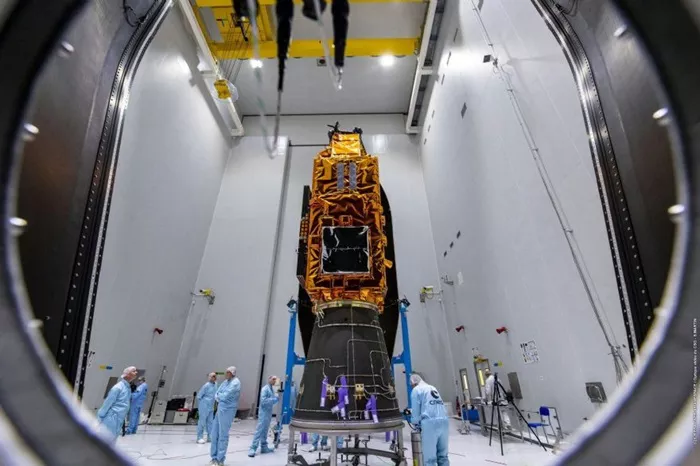The Airbus-built Biomass satellite, designed to monitor forests and assess global carbon levels, has been successfully launched into orbit. This European Space Agency (ESA) flagship mission will use cutting-edge radar technology to measure forest biomass, providing vital data on the planet’s carbon stocks and their impact on climate change.
The satellite launched aboard a Vega-C rocket from the Kourou Spaceport in French Guiana, marking the start of a five-year mission. Operating from an altitude of 666 kilometers, Biomass will scan Earth’s forests, collecting data to help scientists understand the carbon cycle better.
Alain Fauré, head of Space Systems at Airbus Defence and Space, commented, “Biomass will provide scientists with invaluable information on the state of the world’s forests, enhancing our understanding of the climate system. The satellite is now in orbit and ready to deliver crucial data.”
Innovative P-Band Radar Technology
As part of the ESA’s Earth Explorer mission, Biomass carries the first space-based P-band radar. This radar will create detailed maps of forest biomass in tropical, temperate, and boreal forests, helping experts better understand how forests regulate climate. In addition, Biomass will assist in measuring underground water reserves in arid areas, observing ice sheet dynamics, and improving knowledge of subsurface geology and forest topography.
The P-band radar will penetrate forest canopies, providing more accurate Digital Elevation Models of densely forested regions and offering a fresh perspective on the Earth’s surface.
Satellite Features and Development
The spacecraft is equipped with a large 12-meter deployable antenna designed to capture radar data. This data will track changes in biomass, including forest loss from logging or fires, and monitor regrowth. Airbus developed, built, and tested the satellite across several locations in the UK, Germany, and France before shipping it to French Guiana in February 2025.
Teams are now preparing for the in-orbit commissioning phase, while another group is managing the delivery of a ground calibration transponder in New Norcia, Australia. More than 50 companies across 20 countries contributed to the development and testing of the Biomass spacecraft.
Supporting Global Climate Efforts
The data gathered by Biomass will support REDD+, a United Nations initiative aimed at reducing emissions caused by deforestation. By monitoring forests in vulnerable regions without the need for on-the-ground intervention, Biomass will play a key role in global efforts to combat climate change.

